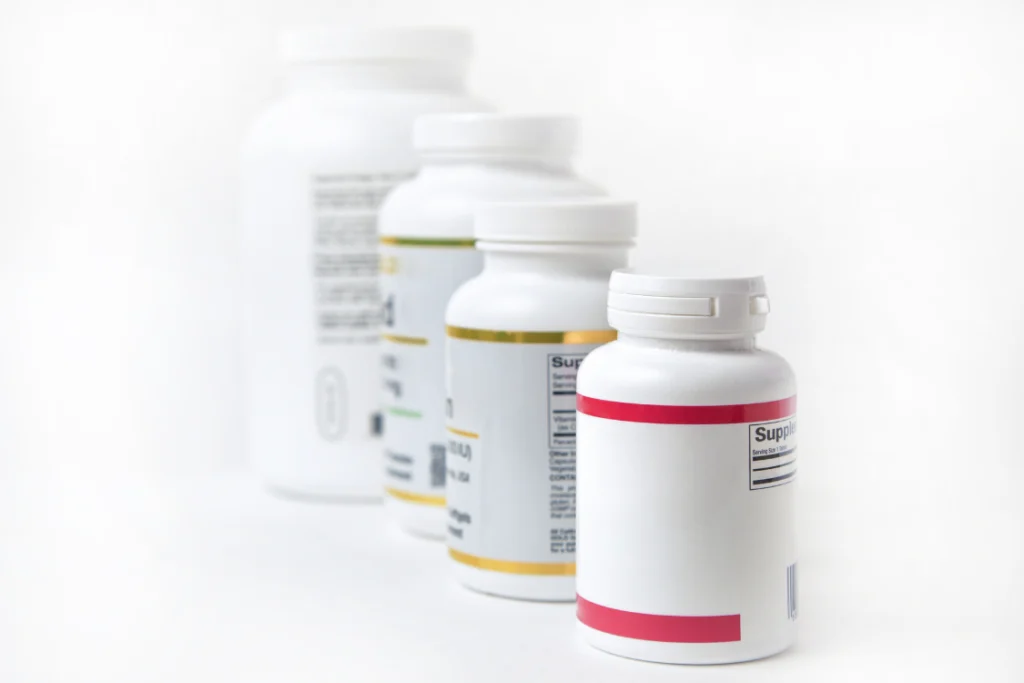Can you really verify supplement certifications displayed on a supplement manufacturer’s website or packaging? Logos such as GMP (Good Manufacturing Practices), NSF (National Sanitation Foundation), or ISO (International Organization for Standardization) may look official, but without proper checks, they could be outdated, misused, or even counterfeit.
Learning how to verify supplement certifications helps your company avoid recalls, fines, and damage to its credibility. Confirming that each credential is legitimate, current, and tied to dietary supplement manufacturing is the best way to protect your brand, meet manufacturer specifications, and maintain strong consumer trust.
Why Certification Verification Matters for Your Brand
Confirming a manufacturer’s certification protects both your reputation and your customers’ safety. In the competitive dietary supplement industry, overlooking verification can cost you credibility and expose your business to unnecessary risks.
Protecting your customers and your reputation
A third-party certification confirms that a supplement has undergone rigorous quality assurance and quality control. The USP (United States Pharmacopeia) Verified Mark, for example, indicates that a product contains the ingredients listed on its label in the correct declared potency and within maximum amounts, is free from harmful levels of heavy metals or other specified contaminants, and was manufactured under good manufacturing practices.
This independent process ensures that both consumers and patients can trust the brand to deliver purity and consistency. For a company promoting a label-free claim or specialty supplement, such as calcium or melatonin, verification is one of the strongest defenses against marketplace doubt.
Avoiding risks from fake or expired claims
Unverified or expired credentials can lead to penalties, recalls, and lawsuits. Some manufacturers recycle outdated promotional materials or display a verified mark that no longer applies. If the FDA uncovers these gaps, the consequences can be severe. For customers already facing a poor diet, relying on uncertified products only adds risk. Checking renewal dates and confirming accuracy against manufacturer specifications helps you prevent these costly mistakes.

Common Certifications in Supplement Manufacturing
Not all certifications are equal. Some prove a facility meets basic safety standards, while others address specific health goals or consumer needs. Knowing the differences helps companies determine which carries the most weight for their audience.
For example, a calcium brand promising bone support or a melatonin supplement marketed for sleep must back up its claims with proof of purity and safety recognized by trusted certifying organizations.
GMP (Good Manufacturing Practices)
Good Manufacturing Practices (GMPs) are federal regulations that set the minimum sanitary and processing standards for food and dietary supplement manufacturing. Published in Title 21 of the Code of Federal Regulations, GMPs guide facility conditions, equipment use, and documentation to ensure products are safe and not adulterated. For the dietary supplement industry, following GMP helps maintain the declared potency of vitamins, minerals, and other nutrients while reducing contamination risks.
NSF Certification
NSF (National Sanitation Foundation) certification confirms that a facility or product meets strict standards for public health. Before approval, companies undergo product testing, material reviews, and unannounced inspections. Certification also requires ongoing audits and re-testing to ensure consistent compliance. Seeing the NSF mark gives consumers, companies, and healthcare professionals confidence that a supplement manufacturer values transparency and long-term product quality.
ISO Certifications
ISO certifications confirm that management systems meet international expectations for safety and efficiency. For businesses seeking to expand globally, ISO certification serves as proof that their operations meet standards recognized by certifying organizations worldwide.
USDA Organic, Non-GMO, Halal, Kosher, Vegan
Specialty certifications add another layer of confidence. USDA Organic rules limit the use of synthetic chemicals. Non-GMO confirms that key ingredients are not genetically modified. Halal, Kosher, or Vegan seals help align supplements with cultural or personal preferences. These programs offer consumers a straightforward way to align their purchasing decisions with their values.

How to Verify a Supplement Manufacturer’s Certifications
Skipping verification puts your brand at risk. Following these steps ensures that your partner meets the standards your customers expect.
Step 1: Ask for official documentation
Request up-to-date certificates directly from the supplement manufacturer. A trustworthy partner will willingly share proof of good manufacturing practices, as well as certifications from organizations such as NSF or ISO. Verify that the documents pertain to dietary supplement production, not unrelated foods or medications.
Step 2: Cross-check with certification databases
Paperwork is not enough. Use public resources to validate credentials. The NSF Certified Facility Directory lists current approvals, and the ISO Database verifies international certificates.
The FDA does not provide a list of facilities fully compliant with GMP, but it does publish inspection records, warning letters, and enforcement actions that flag potential issues. For specialty seals, check USDA or other certifying organization directories. These resources help confirm that a verified mark is more than just a graphic on packaging.
Step 3: Check expiration dates and renewal status
A certificate may cover one type of product but not another. Ensure the scope encompasses dietary supplements and aligns with the processes or products your company requires.
Step 4: Confirm scope and relevance
Examine the type of certification closely. Some credentials may apply to foods or medicine, but not specifically to dietary supplement manufacturing. Ensure the coverage aligns with the exact products and processes your business requires. Without this step, you may assume compliance that does not exist.

Red Flags to Watch for When Reviewing Certifications
Even with documentation, warning signs can reveal more significant underlying issues. Spotting these early prevents costly surprises.
Vague or low-resolution logos on websites
Low-quality logos in promotional materials, packaging, or online may indicate that a manufacturer used a seal without authorization.
Refusal to share certificates upon request
A transparent supplement manufacturer should readily share its certifications. Delays or excuses are clear red flags.
Outdated or expired certifications
Expired approvals show poor oversight or deliberate misrepresentation. In both cases, your brand risks being associated with a partner that does not prioritize quality.
Questions to Ask a Manufacturer About Certifications
Asking direct questions helps reveal a facility’s proper standards:
- Can you share copies of your current GMP, NSF, or ISO certifications?
- Who issued your certifications, and when were they last renewed?
- Do these certifications apply specifically to supplement manufacturing?
- Are you open to third-party audits or client visits?
How Verified Certifications Strengthen Your Brand
Current, valid certifications do more than meet regulations. They reinforce trust and position your brand for long-term success in the marketplace.
Boosting consumer trust
Consumers are more likely to purchase supplements that have been tested, proven safe, and aligned with public health standards. A USP-verified product confirms that key ingredients meet their declared potency and remain below harmful levels of contaminants.
Supporting marketing claims legally
Certifications provide companies with the legal basis to make accurate claims on labels and in promotional materials. For example, a USP Verified Mark or NSF listing can support statements about product quality without creating legal exposure.
Building long-term confidence with your manufacturer
A certified partner shows a commitment to compliance and reliability. This stability enables both sides to focus on growth rather than damage control and reduces the need for constant oversight in daily operations.

Always Verify Before You Trust
Certifications only matter when they are genuine and current. Taking the time to verify supplement certifications, such as GMP, NSF, and ISO, safeguards your brand, supports product quality, and strengthens consumer confidence in every supplement you sell.
A reliable partner should be open about documents, committed to meeting manufacturer specifications, and compliant with trusted certifying organizations. That due diligence builds trust with consumers, supports accurate claims, and protects your role in the dietary supplement industry.
Choosing manufacturers who welcome oversight and provide proof of compliance is the most innovative way to build credibility and achieve lasting growth.
Frequently Asked Questions
What certifications should a supplement manufacturer have?
A trusted supplement manufacturer should hold a minimum of GMP certification, with many also holding NSF, ISO, or other specialty approvals, such as USDA Organic or Non-GMO.
How do I verify a manufacturer’s GMP certification?
You can review FDA inspection records and enforcement reports, or request official GMP documentation directly from the supplement manufacturer.
Where can I verify NSF certification?
Use the NSF Certified Facility Directory online to verify if a manufacturer holds a valid NSF certification.
Why do some manufacturers fake certifications?
Some manufacturers display false or expired certifications to attract clients without meeting proper quality assurance standards.
What happens if I work with a manufacturer with fake certifications?
Partnering with a company that uses fake credentials can lead to regulatory penalties, product recalls, and a loss of consumer trust in your brand.
References
- NSF. (2024, February 8). What is NSF certification? https://www.nsf.org/th/en/knowledge-library/what-is-nsf-certification
- U.S. Food and Drug Administration. (2004, August 9). Good manufacturing practices for the 21st century for food processing (2004 study): Section 1, current food good manufacturing practices. https://www.fda.gov/food/current-good-manufacturing-practices-cgmps-food-and-dietary-supplements/good-manufacturing-practices-21st-century-food-processing-2004-study-section-1-current-food-good
- U.S. Pharmacopeia. (n.d.). USP verified mark. United States Pharmacopeia. Retrieved September 25, 2025, from https://www.usp.org/verification-services/verified-mark





